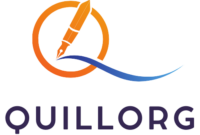As the school year winds down and summer approaches, high school students face the exciting prospect of exploring their passions outside the classroom. For budding writers, summer writing workshops offer a golden opportunity to hone their craft, develop their voice, and connect with like-minded peers.
These workshops, often led by experienced writers and educators, provide an immersive environment where creativity flourishes. In a world where effective communication is key, writing skills are more vital than ever. Summer writing workshops help students refine these skills, offering guidance on everything from narrative structure to poetry techniques. Whether students dream of becoming novelists, journalists, or simply want to improve their writing for academic success, these workshops can be a transformative experience.
By participating in these programs, students not only enhance their writing abilities but also gain confidence and inspiration. The workshops foster a sense of community, encouraging young writers to share their work and receive constructive feedback, setting them on a path to literary success.
Summer Writing Workshops For High School Students
 Summer writing workshops for high school students provide a structured, engaging environment where participants enhance their writing skills. These workshops focus on diverse genres such as fiction, poetry, and creative non-fiction, allowing students to explore different writing styles.
Summer writing workshops for high school students provide a structured, engaging environment where participants enhance their writing skills. These workshops focus on diverse genres such as fiction, poetry, and creative non-fiction, allowing students to explore different writing styles.
Experienced educators guide students through exercises that hone literary techniques. Participants often engage in group discussions and collaborative projects, which foster peer learning and build confidence. Workshops typically include critiquing sessions where students give and receive constructive feedback on their work, facilitating improvement in their writing capabilities. Students also benefit from guest lectures by published authors, gaining insights into the publishing world and the writing process. Many programs offer scholarships or financial aid, making them accessible to a wide range of students. These workshops not only improve writing skills but also help students build a portfolio for college applications, enhancing their academic prospects.
Benefits For High School Students
Summer writing workshops offer numerous advantages for high school students, enhancing their academic and creative growth. These workshops prepare students for future opportunities in education and beyond. Workshops refine students’ writing abilities in fiction, poetry, and creative non-fiction.
workshops prepare students for future opportunities in education and beyond. Workshops refine students’ writing abilities in fiction, poetry, and creative non-fiction.
Through targeted exercises, they’re encouraged to explore literary techniques such as characterization, dialogue, and pacing. This focused approach ensures that students build a strong foundation in diverse writing genres. By developing a portfolio during workshops, students bolster their college applications. Strong writing samples demonstrate critical thinking and communication skills valued by admissions officers.
Additionally, understanding feedback and revision processes prepares students for rigorous college-level writing. The creative environment of workshops fosters self-expression, allowing students to explore personal stories and imaginative ideas. Sharing work in a supportive community encourages new perspectives and helps students find their unique voice. This nurturing atmosphere inspires experimentation and growth in their writing journey.
How To Choose The Right Workshop
 Choosing the right summer writing workshop for high school students involves several important considerations. First, identify the student’s literary interests fiction, poetry, non-fiction to ensure the workshop’s focus aligns with their passions. Next, evaluate the program’s reputation by researching reviews, alumni feedback, and the instructors’ qualifications.
Choosing the right summer writing workshop for high school students involves several important considerations. First, identify the student’s literary interests fiction, poetry, non-fiction to ensure the workshop’s focus aligns with their passions. Next, evaluate the program’s reputation by researching reviews, alumni feedback, and the instructors’ qualifications.
Experienced educators and published authors often provide high-quality instruction. Consider the workshop’s size and format. Some students thrive in intimate settings with personalized feedback, while others prefer larger groups for diverse perspectives. Check if the workshop includes components like peer reviews or guest lectures, which enhance the learning experience. It’s also crucial to assess the schedule and location to ensure they fit the student’s summer availability and comfort. Finally, review the cost and availability of financial aid or scholarships. Many workshops offer assistance to make programs accessible to a wide range of students. By considering these factors, families can select a workshop that enriches the student’s writing and supports their educational goals.



